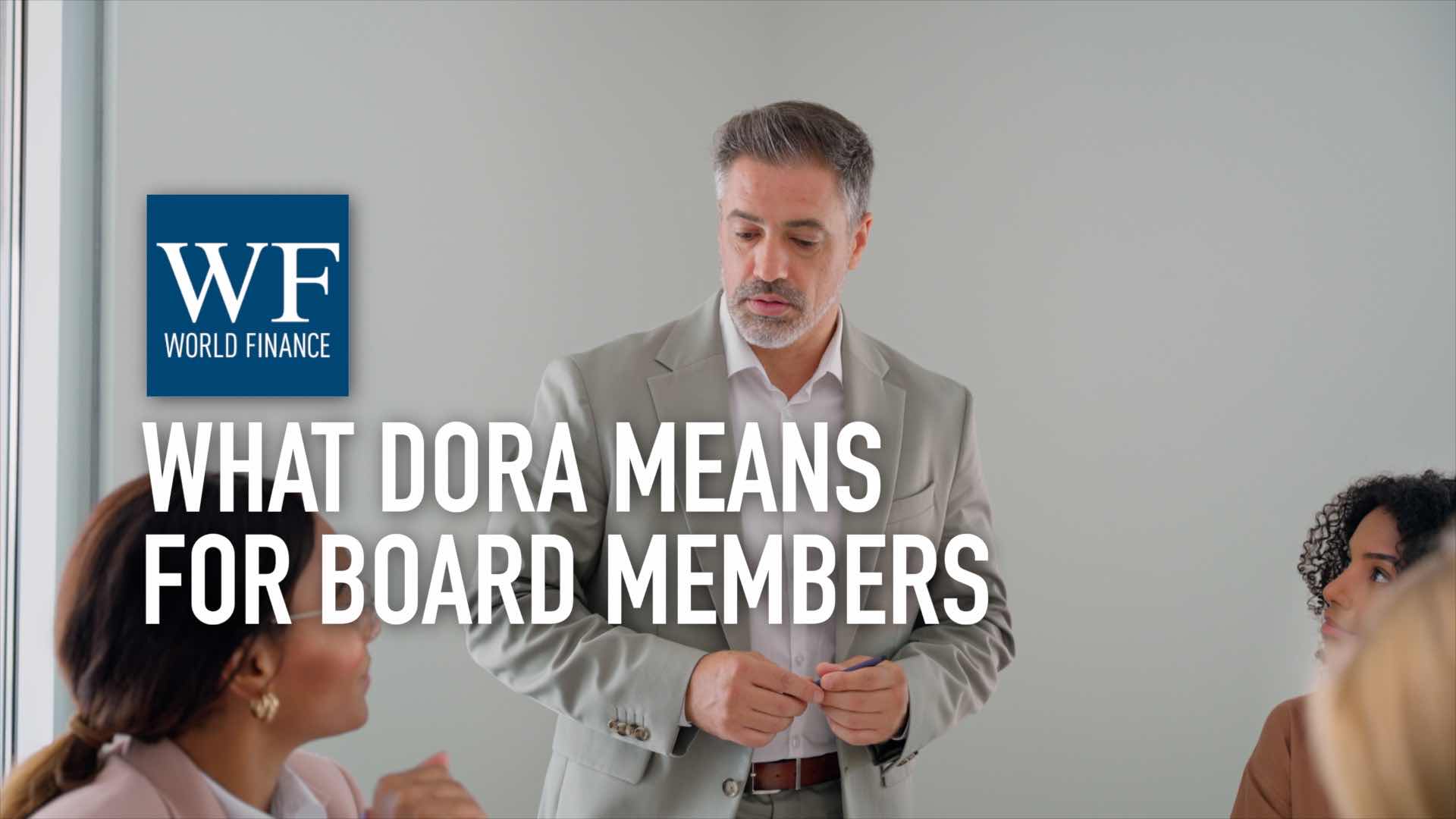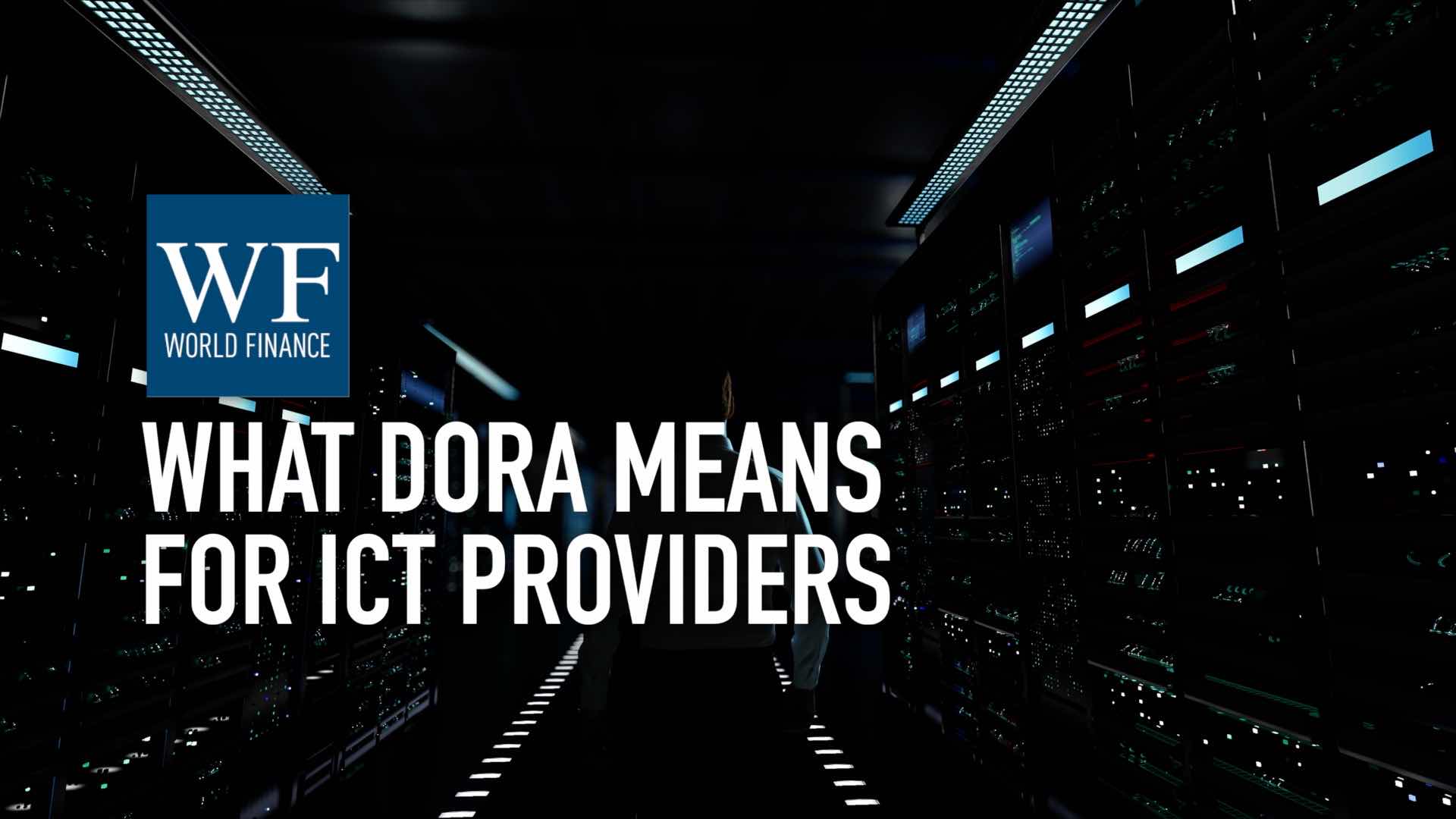Britam: No end in sight for foreign acquisitions in Kenyan insurance
Regulatory incentives and promise of middle class growth are driving foreign interest in Kenya's insurance sector, says Britam's Ambrose Dabani
Related:
Transcript
Kenya today is a growing economy, with a rising middle class and very low insurance penetration. So it’s no wonder that it has become an extremely attractive market for foreign capital. Ambrose Dabani, General Manager, Life and Pensions from British-American Insurance, discusses the consolidation of the insurance industry in Kenya, Britam’s approach to risk management, and its customers’ savings needs.
World Finance: Not long ago, many people in Kenya had little or no insurance coverage. Now however, comprehensive and innovative services are readily available to the masses – so much so, that it has become an extremely attractive market for foreign capital. With me now to discuss this potential is Ambrose Dabani from British American Insurance.
Well Ambrose, the Fitch ratings agency reported that investors’ appetite in acquisitions in the Kenyan insurance industry has pushed up valuations significantly. What would you say the driver is behind this?
Ambrose Dabani: You must realise that Kenya today is a growing economy, with very low insurance penetration. There is a growing middle class, and therefore increasing the capacity of people who can buy insurance.
We also have a regulator which is looking at increasing penetration, attracting foreign companies to come to the country. And it is encouraging them to come through acquisitions.
You can choose to come as a greenfield setup – but that has its own setup challenges and setup risks. So what the regulator prefers is that companies coming through should come through an acquisition. And therefore that has led to an increase in the demand-side.
World Finance: So the market is seeing a lot of consolidation: what do you make of this?
Ambrose Dabani: Currently, pre-consolidation, we have about 43 companies. And it is the feeling of the industry that that is too many. And therefore we’re looking at a period when there’s a lot of capital investment required – in terms of innovation, in terms of technology.
There’s also an increase in regulatory capital, and therefore the smaller companies are looking to be bought out. So therefore, that is also on the supply side in terms of insurance companies that are looking to be acquired, that has also increased.
World Finance: And compared to its African neighbours, why would you say the Kenyan insurance market is flourishing?
Ambrose Dabani: One: very low penetration. So that means definitely there’s an upside potential.
Two: a growing population, a growing economy. That means the middle class is also growing; that also increases the market.
And also at the moment there’s a lot of technological innovations that are giving room for increased innovation on products, on distribution.
Kenya is also seen as a hub to the rest of east Africa because of its geographical location, its developed financial markets, its educated labour force – and therefore, naturally anyone who wants to come to that part of the region will start with Kenya.
World Finance: Well as you mentioned, like most industries technology is changing the insurance landscape. So what innovations are coming to market?
Ambrose Dabani: Technology is changing. And specifically to Kenya there is what we call the mobile money phenomenon: you must have heard of M-Pesa. Now, that is where you can have all your money on your phone, never have to visit a bank – but you have all the banking services on your phone.
Now, that is really changing a lot of things. It’s changing the nature of products that we have. Now we have mobile phone products – now you can sign up for insurance on your mobile. We’re exchanging processes – now you can have all your customer care services on your phone.
It’s also changing the way we distribute. We have 20 million people – we’re talking 20 million out of a 45 million population. That’s a huge proportion that’s on a mobile phone. The penetration of smartphones means that you’re able to distribute insurance products through the mobile phone.
So yes, that’s creating a lot of innovation around distribution, around products, around processes.
World Finance: And how do you tailor your offerings to individual needs? And indeed, what are these needs?
Ambrose Dabani: As I said, we have diversified financial services. We offer products for any stage of life, right from the time you get out of school and get your first job. Of course, you have your short-term saving needs – either to go back to school, to get married, to start having a family, buy your first house… so we have lots of savings products.
Then we move on to the point where maybe someone has a family, and they’re thinking about education for their children, thinking about personal health and healthcare. We have all those products in Britam.
All the way to savings for retirement, and also even accommodating retirees, with all their needs around regular income, around meeting their medical requirements. We have very, very innovative products at Britam: to meet retirement needs, retirement expenses, regular income until death, and even to spouses and all other dependents thereafter.
World Finance: In terms of asset management and investments now, how do you manage risk?
Ambrose Dabani: At Britam we have a separate, full-fledged asset management company. It’s very, very rapidly growing in terms of assets under management, because of the investment philosophy that we have.
You’ve got to remember that we manage people’s money, and therefore first we’ve got to deliver the return we promised, and with certainty around that particular promise. And therefore we are not gambling with people’s money: we have processes, we have quality controls in place, we have risk management as a function right at the board.
Senior management and risk management function that reviews our processes. And we do our investment based on asset liability margin principles, so that we don’t take too much risk.
Remember that we’re also a regulated company, so we also have to have a look at what the regulator advises as correct investment principles. So yes, risk is very, very well managed.
World Finance: Finally, how do you see this industry evolving over the coming 12 months?
Ambrose Dabani: The coming 12 months are going to be busy! At an industrial level, at Britam’s level, it’s going to be busy.
We expect that consolidation will continue. We’re still hearing of new companies from Europe, from South Africa, looking for appropriate companies to buy. We expect that there’s going to be new legislation or regulatory environment in place. Currently the draft is being discussed by the industry – it’s causing a lot of excitement, as we move to risk-based supervision, in line with the rest of the world. So we expect that is going to continue.
We’re seeing more and more insurance companies are going to jump onto technology, coming up with innovative products, innovative distribution models, and innovative servicing, just to be more efficient and cut their costs, and deliver value to the client.
So therefore we expect lots of activities. It’s a very interesting time for insurance companies.

 What the Digital Operational Resilience Act means for board members and CEOs
What the Digital Operational Resilience Act means for board members and CEOs What the Digital Operational Resilience Act means for third party ICT providers
What the Digital Operational Resilience Act means for third party ICT providers
